RobotLAB Blog
Everything You Need To Know About Robotics in Businesses
The Future of Medical Education Relies on AI & Robotics
By Devin Partida
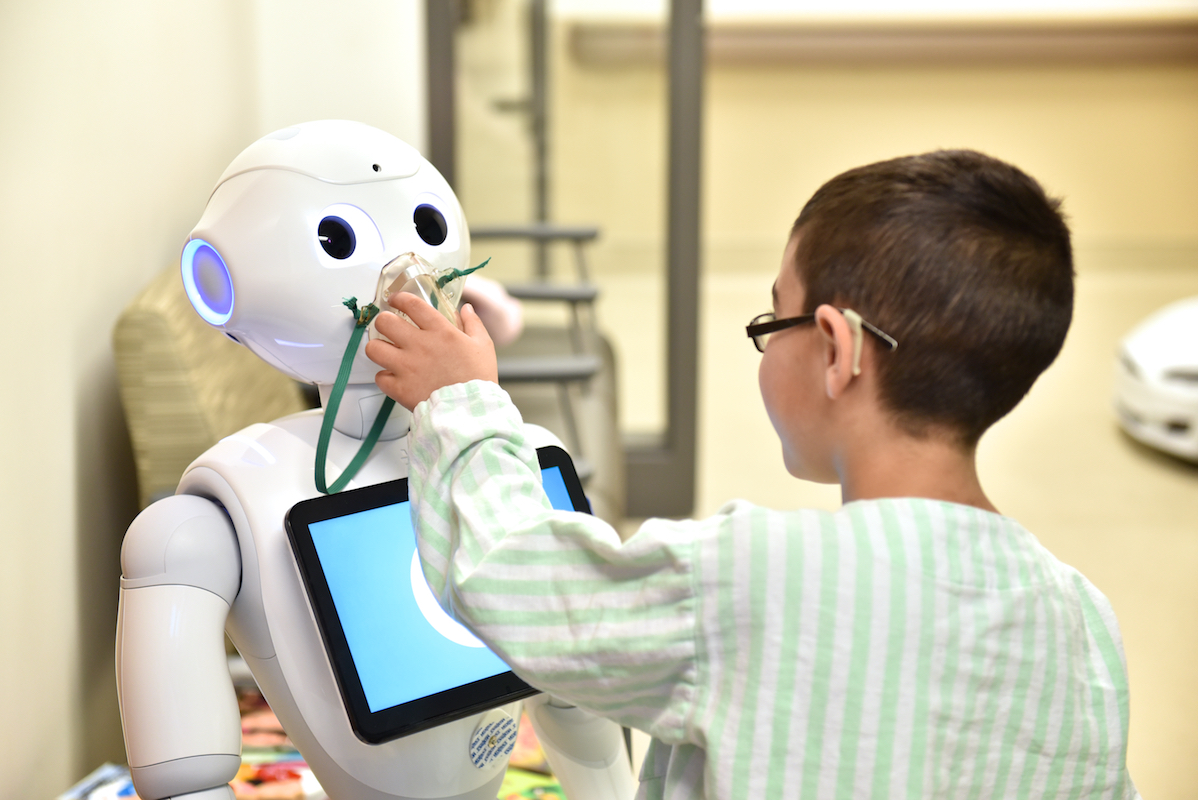
Medical education is not something obtained easily or quickly. Traditional medical education requires a four-year undergraduate program, a four-year graduate program in medical school, and a residency that can take anywhere from three to seven years, not to mention the tests necessary to practice medicine in the state they live in. Everything from basic treatments to delicate surgeries requires practice.
While some of these procedures can be practiced on cadavers or dummies, the best education comes from hands-on experience. However, these experiences aren’t always available. How can we ensure the next generation of medical professionals has the training and education to care for future patients? What role will artificial intelligence (AI) and robotics play in the future of medical education?
- 0 Comments
- May 20, 2022 10:30:00 AM
- Posted by Elad Inbar
- Topics: EdTech, STEM, Awards, Expeditions, VR, Realidad Virtual, Google Expeditions, Virtual Reality, virtual learning, Expeditions 2.0
5 Innovative Skills Children Get With Robotics
By Nancy Howard
Robotics is already used by schools all around the world. Machines such as RobotLAB’s Pepper Robot are the primary examples of what robotics ideally looks like in practice and how it can be applied in different activities.
Indeed, children find robots interesting and programming them entertaining. Robot kits like Lego Mindstorms have become popular precisely for those reasons. But why exactly should children be taught robotics? Here are the five innovative skills children can get with robotics.
- 0 Comments
- Apr 15, 2022 1:03:13 PM
- Posted by Elad Inbar
- Topics: EdTech, STEM, Awards, Expeditions, VR, Realidad Virtual, Google Expeditions, Virtual Reality, virtual learning, Expeditions 2.0
VR Expeditions 2.0 is The 2022 Cool Tool Winner by The EdTech Awards Under the AR/VR Solution Category!
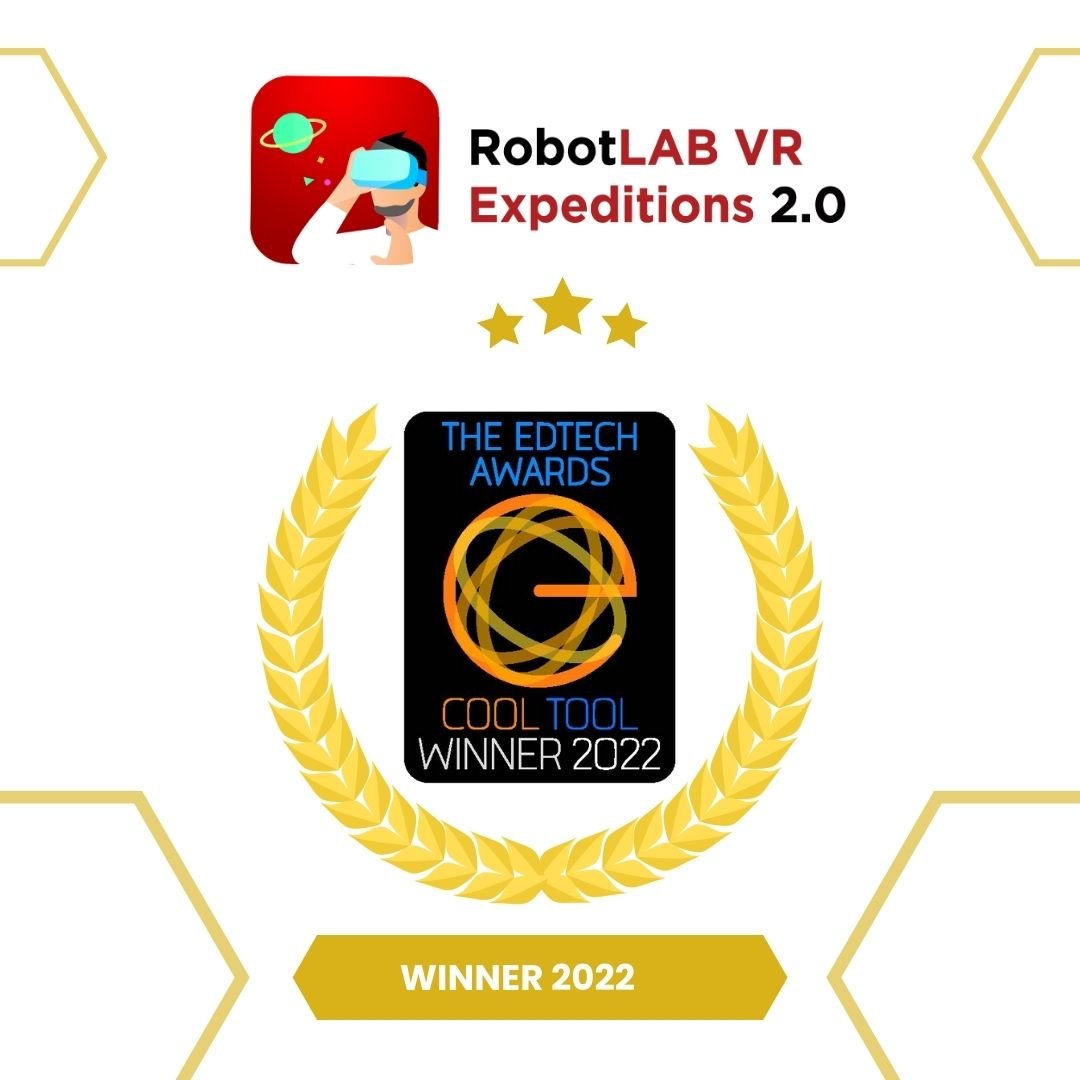
.png?width=1380&name=image%20(9).png)
RobotLAB is so excited to announce that the VR Expeditions 2.0 app is the Cool Tool 2022 winner by the EdTech Awards under the AR/VR solution category!
RobotLAB VR Expeditions 2.0™ is inspired by the great work Google did, and following feedback from thousands of educators, RobotLAB created a VR tool tailored to educators’ needs.
- 1 Comments
- Mar 31, 2022 1:33:09 PM
- Posted by Elad Inbar
- Topics: EdTech, STEM, Awards, Expeditions, VR, Realidad Virtual, Google Expeditions, Virtual Reality, virtual learning, Expeditions 2.0
Is Google Arts and Culture a Good Replacement for Google Expeditions?
Since Google Expeditions was discontinued on June 30, 2021, Google redirects everyone to use the Google Arts and Culture app and presents it as a replacement for Expeditions.
Google listed a lot of content from all around the world in the app, but is it a good solution for in-class virtual reality field trips?
Google Arts and Culture app include many of the experiences that were available on Google Expeditions. However, we at RobotLAB tried and tested the app and there are major differences and issues we wanted you to be aware of.
Our teacher partners have shared with us their thoughts on Google's alternative, and they all mainly agree:
Google Arts and Culture is a great source for content, but NOT suitable for in-class virtual field trips.
- 0 Comments
- Aug 14, 2021 4:30:00 PM
- Posted by Natalia Galvis
- Topics: EdTech, STEM, Curriculum, teachers, Coding, students, Expeditions, VR, Realidad Virtual, Edchat, Digital Technology, Google Expeditions, teaching, online, Virtual Reality, Expeditions 2.0
Google Expeditions Is Gone, Now What?
The long-time Educator's favorite app, Google Expeditions, was discontinued today. A replacement app is available now for educators: VR EXPEDITIONS 2.0 from RobotLAB Inc.
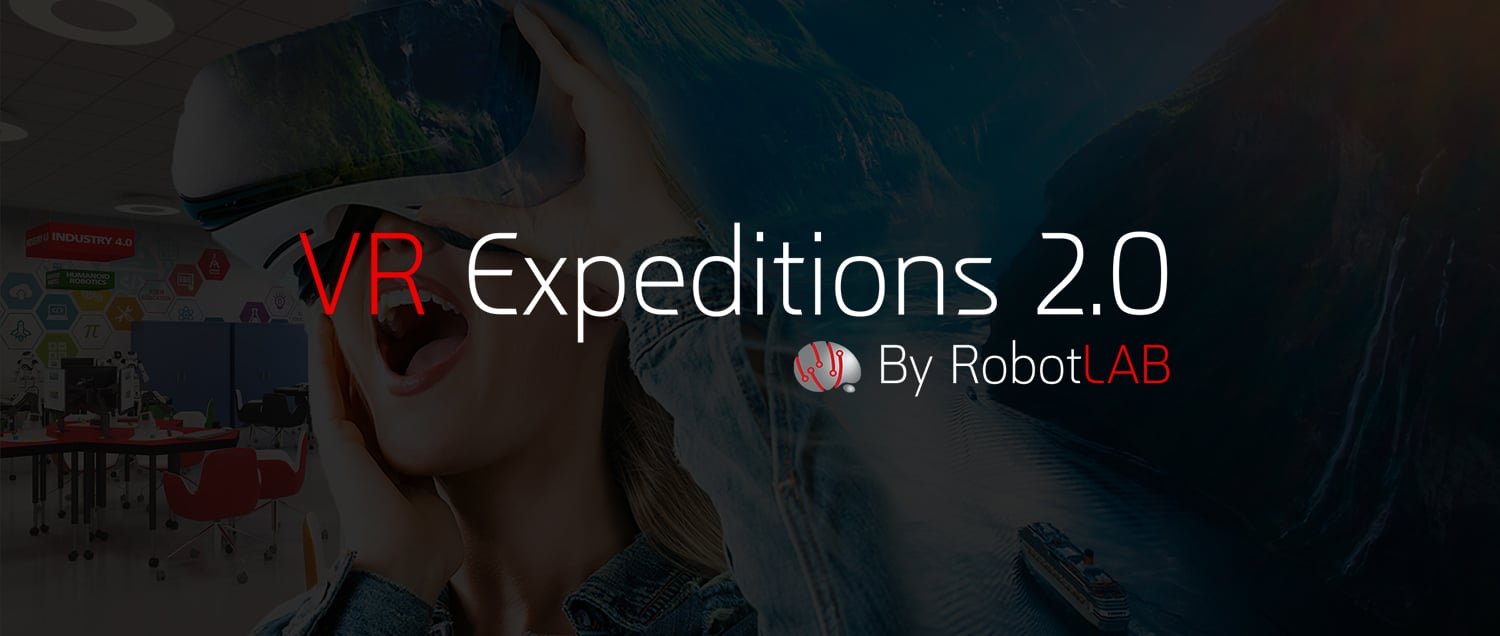
- 3 Comments
- Jul 2, 2021 10:25:28 AM
- Posted by Natalia Galvis
- Topics: EdTech, STEM, students, Technology, Expeditions, Innovation, Realidad Virtual, Edchat, Digital Technology, online, Virtual Reality, virtual learning, lessons, Expeditions 2.0
Will Robots be Good Teachers?
By Tiffany Harper
People have long been fascinated by how robots work. And as technology is improving, it also offers new development opportunities for the robotics industry. There are already robots that are considered the future of logistics, while others are used to welcome and greet patients at many hospitals.
But according to the best paper writing service, robots could make their entry in the educational domain too.
- 0 Comments
- Jan 19, 2021 10:00:00 AM
- Posted by Natalia Galvis
- Topics: Robotics, EdTech, STEM, Curriculum, teachers, Robots,, students, Technology, Expeditions, Edchat, Digital Technology, teaching, online, covid19, lessons, eLearning
Robots as Learning Companions During a Pandemic
By Tiffany Harper
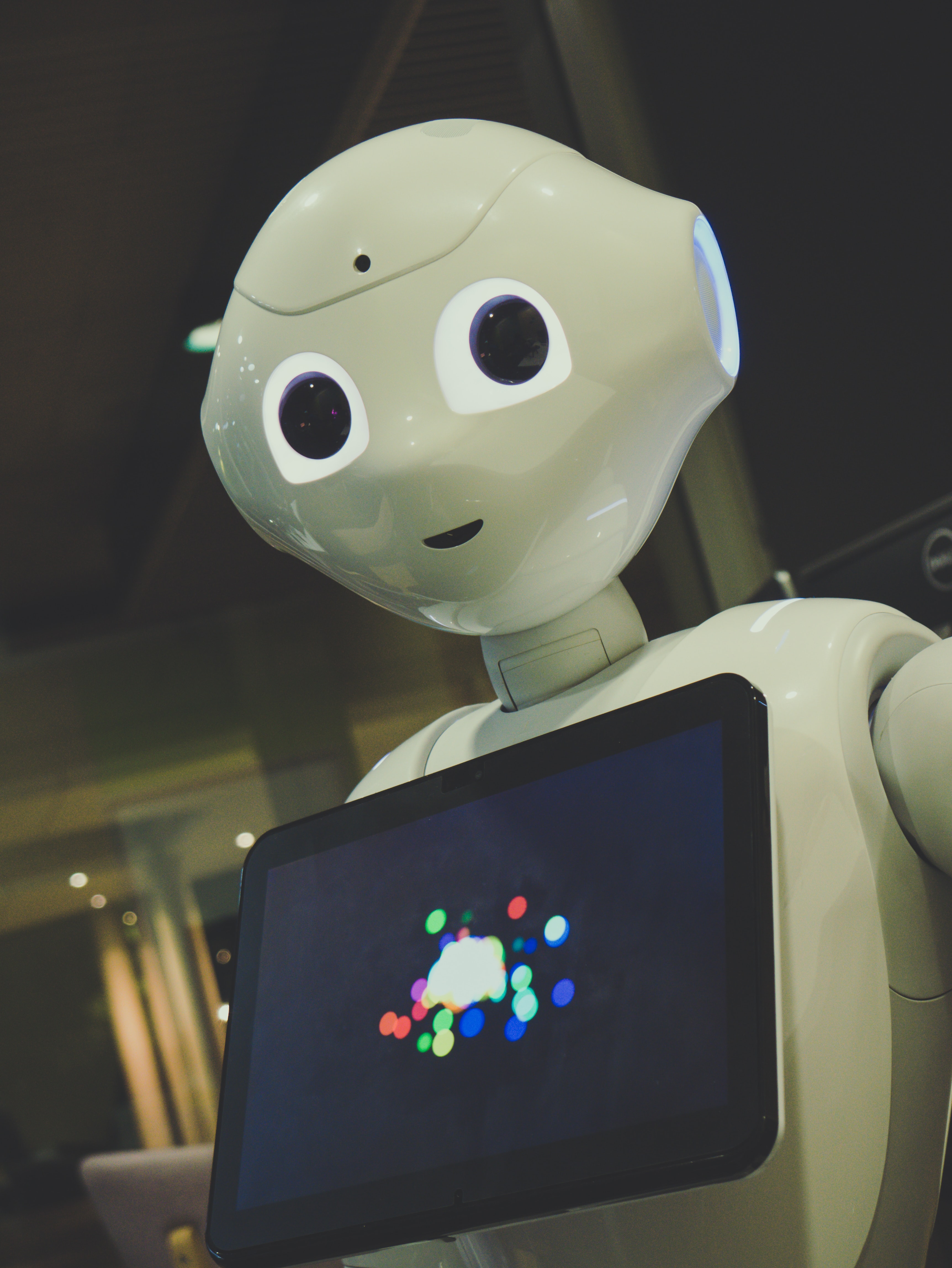 Photo by Owen beard unsplash
Photo by Owen beard unsplash
There have been many consequences of the COVID-19 pandemic already. The concept of social distancing was nonexistent before the pandemic, but it's something that we all have to live and work by now. Everybody is now subjected to the use of a nose mask while also trying to keep a distance of 6 feet from the persons around them. It’s a lot to live by, yet the world has not changed.
Industries and companies have responded to the gap which Covid creates in different ways. People that can afford to work remotely are working remotely, but then goods delivery has to continue, someone needs to clean the workplaces, and people need to receive medical attention. All of these require close interaction that the world can’t afford now, thanks to the virus. That’s why the world is now turning to robots to fill the void.
- 5 Comments
- Jan 15, 2021 10:00:00 AM
- Posted by Natalia Galvis
- Topics: Robotics, EdTech, STEM, Curriculum, teachers, Robots,, students, Technology, Expeditions, Edchat, Digital Technology, teaching, online, covid19, lessons, eLearning
3 Ways VR Can Be Used In Modern Education
By Nancy Howard
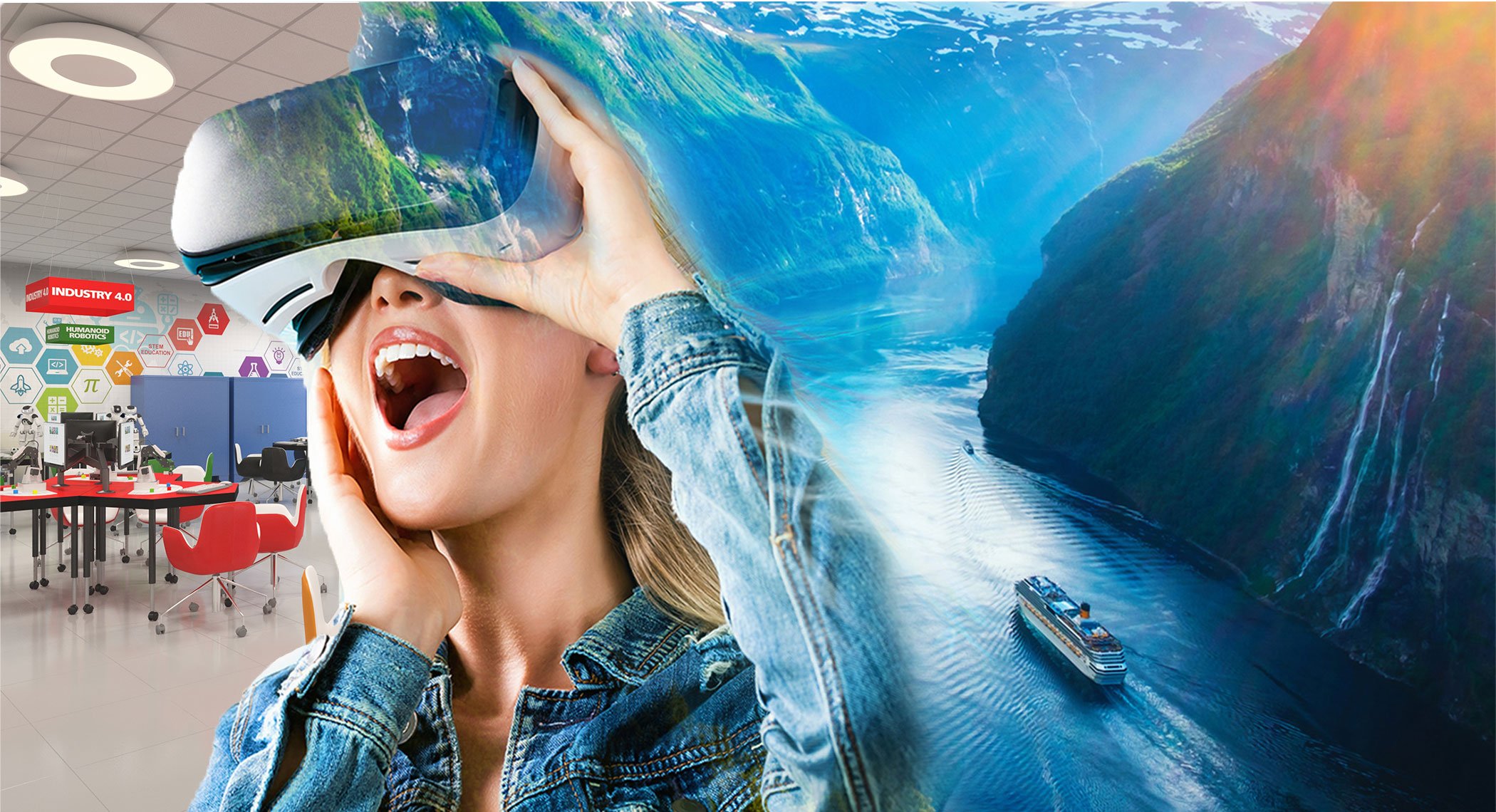
VR has a significant impact on educational processes: only through this technology can students safely and in detail, see what they are learning, from the decay of atoms to extinct organisms. According to analysts at ABI Research, by 2022, the global market for VR-learning will grow to a total of $6.3 billion. As early as the end of 2018, virtual technology has been implemented in 18% of U.S. curricula. Let's take a look at how VR is used to enhance educational processes.
- 1 Comments
- Jan 14, 2021 10:00:00 AM
- Posted by Natalia Galvis
- Topics: EdTech, STEM, Curriculum, teachers, students, Technology, Expeditions, VR, Edchat, Digital Technology, teaching, online, Virtual Reality, lessons, eLearning
FREE Distance Learning Tool You Can Use NOW!
Hundreds of educators have contacted us in the past weeks, asking for resources to teach remote, while schools open online only, or hybrid only.
RobotLAB got you covered!
In this video, you will learn how to use Google Expeditions while being remote. It is easy, it is free, and it is full of places to go to, even if we can't physically do it.
Watch the video below and learn how to do it in three simple steps
Click on the image above, or here : https://youtu.be/QuLurF29-JE
- 0 Comments
- Aug 11, 2020 2:45:20 PM
- Posted by Natalia Galvis
- Topics: Math, EdTech, STEM, students, Expeditions, STEMchat, Mathematics, Edchat, Google Expeditions, coronavirus, Virtual Reality, covid19
A Vision For the Future of Virtual Reality in Education
Virtual Reality (VR) is slowly taking over our entertainment industry. But what are the implications for other areas of our lives, such as business, health, and even…education? While the educational realm generally takes longer than anyone else to embrace new technology, VR brings many implications for the schools of tomorrow.
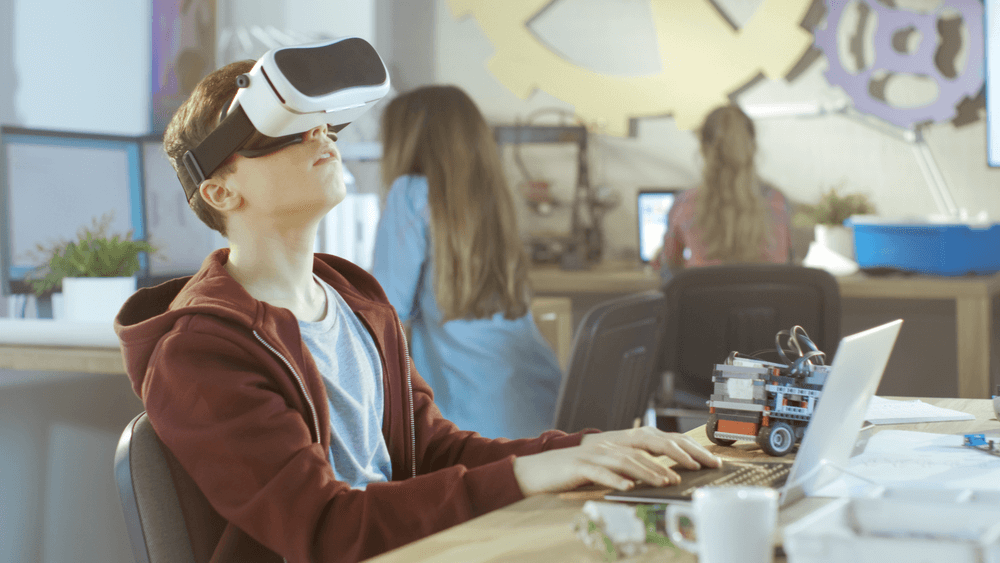
Here are some ways in which VR might change the face of education in the future.
- 0 Comments
- Dec 2, 2019 10:10:00 AM
- Posted by Natalia Galvis
- Topics: EdTech, Education, Expeditions, Realidad Virtual, Edchat
Relevant Posts
- Augmented Reality: A Tool for Teaching Students Robot Programming
- Fostering Innovation Through Youth Education in STEM and EdTech
- How Parents Can Foster STEM Learning Beyond the Classroom
- How Robotics Cultivates a Deep Understanding of Mathematics in Students
- RobotLAB Receives EDTech Chronicle 2023 ‘BESTIE’ Award for Landmark Partnership with American Samoa Dept. of Education.
Subscribe to Email Updates
-
I Want To Learn MoreADDITIONAL INFORMATION

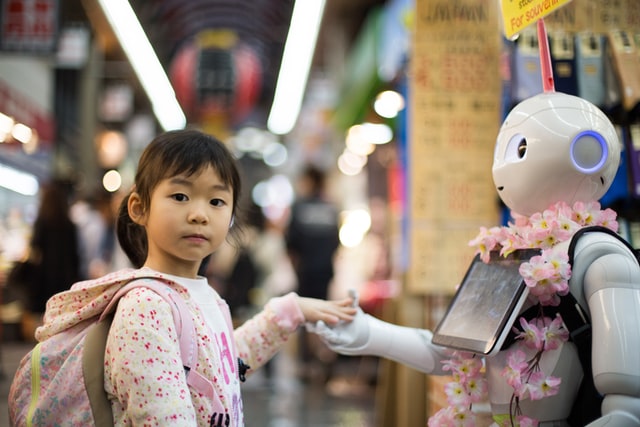
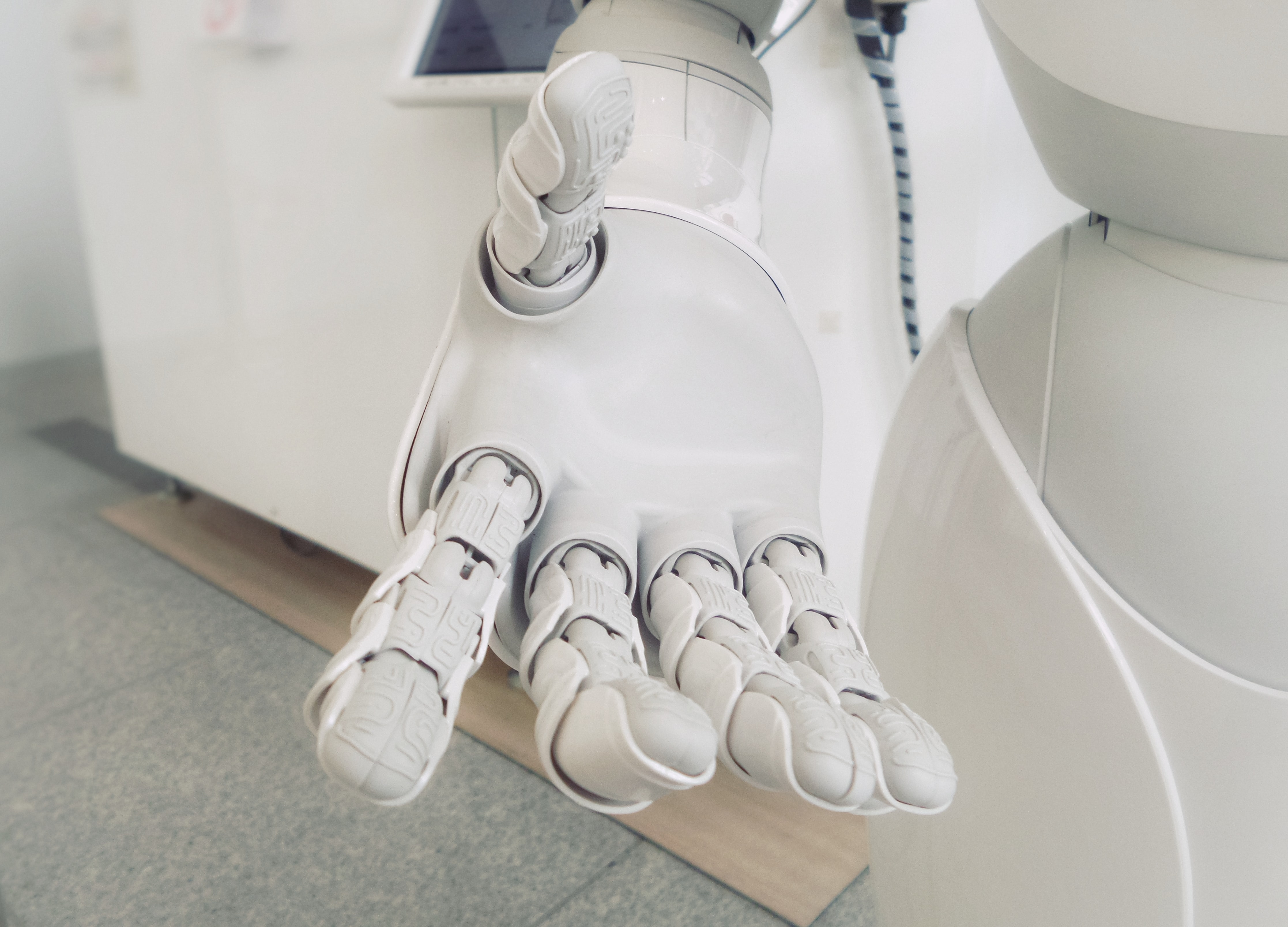 By
By -1.gif?upscale=true&upscale=true&width=681&name=gif%20(3)-1.gif)